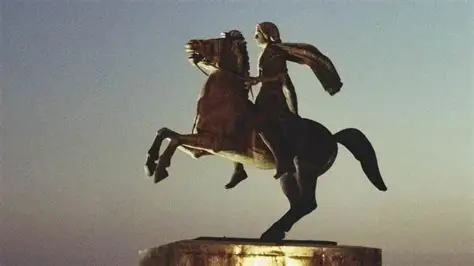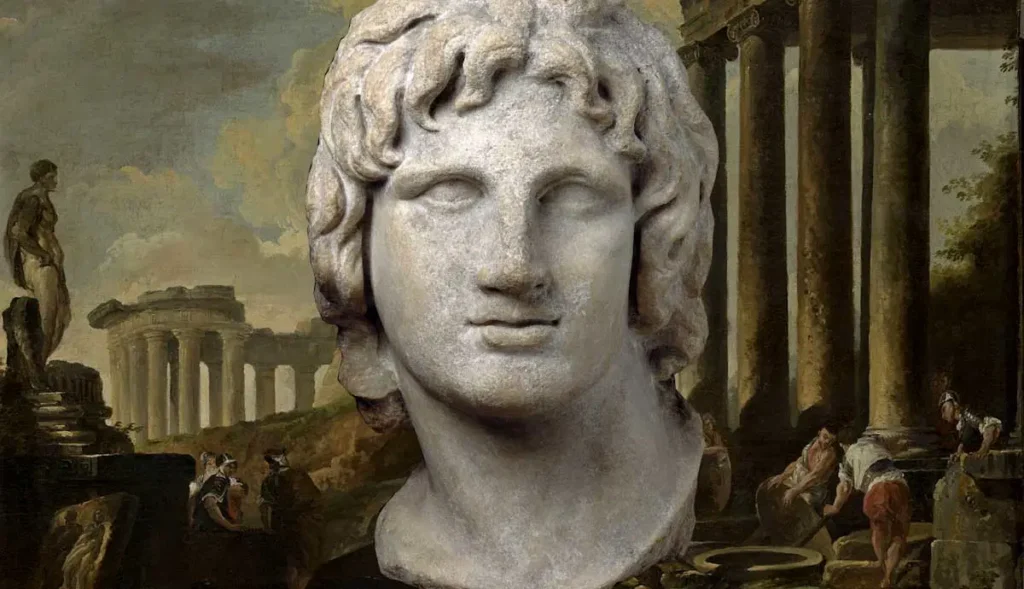Alexander III of Macedon, widely known as Alexander the Great, remains one of the most remarkable figures in world history. Born in 356 BCE in Pella, the capital of the Macedonian kingdom, he rose to prominence as a brilliant military strategist, fearless warrior, and ambitious ruler whose empire stretched from Greece to India. Though his life was short—he died at just 32 years old in 323 BCE—his achievements left an enduring legacy that shaped politics, culture, and civilization across continents.
Early Life and Education
Alexander was the son of King Philip II of Macedon and Queen Olympias. From a young age, he was exposed to leadership, warfare, and politics. His father’s military reforms and expansionist vision laid the foundation for Alexander’s later conquests.
One of the most influential aspects of his upbringing was his education under the philosopher Aristotle, who tutored him in philosophy, science, literature, and politics. Aristotle also instilled in him a love for Greek culture and an appreciation for knowledge, which later influenced Alexander’s policies of cultural blending.
Rise to Power
In 336 BCE, after the assassination of Philip II, Alexander ascended to the throne at just 20 years old. Despite his youth, he quickly consolidated power, suppressing revolts in Greece and securing the loyalty of the Macedonian army. His leadership, charisma, and boldness inspired immense loyalty among his troops, who would follow him through years of relentless campaigns.
Military Campaigns and Conquests

Alexander’s conquests are legendary. His military campaigns spanned just over a decade but forever changed the ancient world:
- Defeat of the Persian Empire – At battles such as Granicus (334 BCE), Issus (333 BCE), and Gaugamela (331 BCE), Alexander crushed the forces of Darius III, bringing down the centuries-old Persian Empire.
- Founding of Cities – Alexander founded more than 20 cities, the most famous being Alexandria in Egypt, which became a major center of learning and culture.
- Egypt and Asia – He was welcomed as a liberator in Egypt, where he was declared the “Son of Zeus-Ammon.” His empire stretched into Mesopotamia, Central Asia, and eventually into the Indian subcontinent.
- India Campaign – At the Battle of Hydaspes (326 BCE), Alexander defeated King Porus in modern-day Pakistan. Though victorious, his troops, weary from years of campaigning, refused to march further into India, forcing him to turn back.
Vision of Empire
Alexander’s ambition was not only to conquer but also to unify. He sought to blend Greek and Eastern cultures, encouraging marriages between his soldiers and local women, adopting elements of Persian dress and customs, and spreading Hellenistic culture across his empire. This cultural fusion, known as Hellenism, left a lasting influence in art, language, architecture, and science.
Death and Legacy

In 323 BCE, Alexander fell ill in Babylon and died under mysterious circumstances—possibly from fever, poisoning, or natural causes. His sudden death without a clear heir led to the fragmentation of his empire, as his generals (the Diadochi) divided the territories among themselves.
Despite the collapse of his political empire, Alexander’s legacy endured:
- The spread of Greek language and culture across the Near East.
- The creation of Hellenistic kingdoms that fostered trade, science, and philosophy.
- His military strategies, which remain studied in military academies to this day.
Conclusion
Alexander the Great was more than a conqueror; he was a visionary whose ambitions reshaped the ancient world. His ability to inspire loyalty, innovate in warfare, and envision cultural integration secured his place in history as one of the greatest leaders ever known. Though his empire dissolved after his death, the cultural and intellectual exchanges he set in motion echoed through centuries, leaving a mark on civilizations far beyond his time.



666casino is a solid choice if you’re looking for a casino experience. I’ve found it to be pretty reliable. Good for chilling and having some fun. 666casino